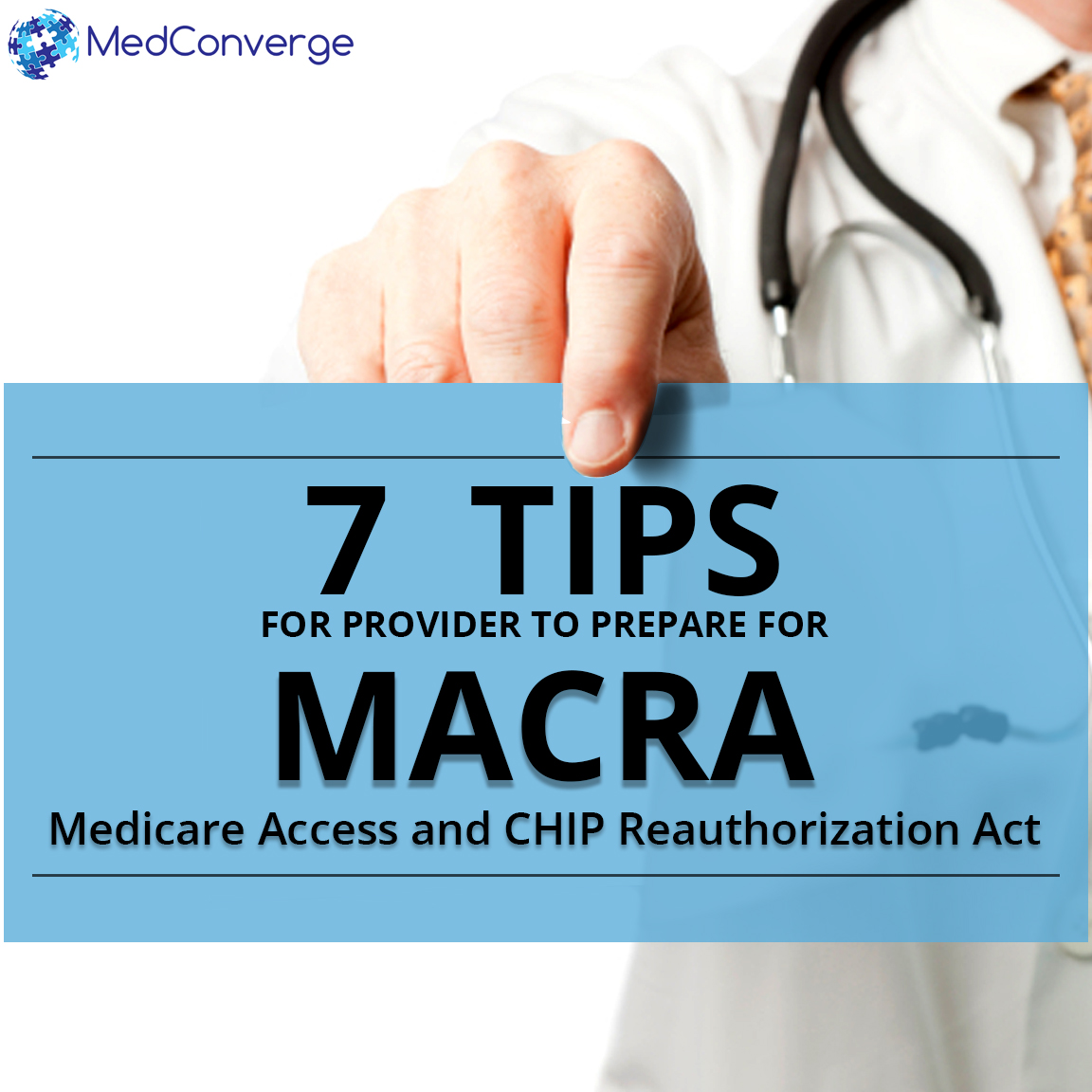Replacing the much-maligned sustainable growth rate formula and in an effort to increase quality while bringing down costs, the Congress last year passed the Medicare Access and CHIP Reauthorization Act (MACRA). While MACRA rules are still being finalized, it will essentially transform the way Medicare reimburses healthcare providers for services. The main purpose of this overhaul to the payment system is to improve the quality of healthcare that is provided to patients. Another reason is to keep in check the cost of healthcare. To put it simply, MACRA brings a shift to value-based incentives, rewarding providers that deliver on quality, cost and patient outcome measures.
MACRA establishes two value-based payment (VBP) tracks for physicians – Merit-based incentive payment system (MIPS) and alternative payment models (APMs). In the first year of its introduction, all eligible clinicians and physicians will need to report through MIPS that incorporates three pay-for-performance programs – meaningful use, the Physician Quality Reporting System (PQRS), and the physician VBP modifier. It further adds a new component called clinical practice improvement. Healthcare providers will have the liberty to choose their own reporting track from the second year onwards.
Although nobody is sure where the final ruling will end up, or the tweaks that are sure to follow; improving the best practices in the facility is never a bad thing. Even though, 2019 seems far away, healthcare providers need to start thinking about MACRA now. The large majority of healthcare facilities and physicians haven’t realized the impact of this shift and thus have not worked out the right strategies. To ensure optimized payments under Advanced APMs, MIPS and APMs subject to MIPS, eligible healthcare providers and physicians need to focus on the key areas that have immediate impact on improving quality and cost. Taking out time now, before the regulation is released, to become more familiar with the programs under MACRA and begin to prepare for the changes, will go a long way in ensuring that you receive your just dues and avoid penalties.
Here are 7 things that healthcare providers and physicians need to do to prepare for MACRA.
- Educate providers and encourage discussions to outline a strategy for tackling MACRA.
- Participate in a patient clinical data registry – if you are not doing so contact your specialty society about participating in its registry. Data registries will help streamline reporting and assist with MIPS performance scoring.
- Ensure that your practice is up to speed with current initiatives as many elements of MIPS will be derived from existing programs.
- A well-designed certified electronic health record (EHR) can help providers fulfill Meaningful Use and PQRS requirements with less effort. In addition to providing real-time summaries of quality measure progress, EHRs can be used to generate attestation documentation thus simplifying administrative efforts to successfully meet program goals.
- Check your Medicare Quality and Resource Use Reports(QRURs) for 2014 and the first part of 2015. Understand how you are currently being rated on cost and quality and find areas where improvement is possible.
- Review CMS’ proposed list of episode groups.
- Strengthen your relationships with your payors. If possible, join one of their pilots for cost-saving programs.
While the above mentioned tips will definitely help you prepare your facility for MACRA, the complexities of MIPS and APMs is going to be a challenge to all healthcare providers and facilities. Even large facilities with sophisticated IT and quality departments need help in evaluating trends. Information in EHRs and quality reports can be valuable, but you might need the services of an outside party to sort through and look at data trends. MedConverge can help you by taking your healthcare data and translating it into actionable quality improvement processes. Firmly committed to its client’s organization and their goals, MedConverge fully understands their needs and provides 24×7 ongoing support to their practice.



